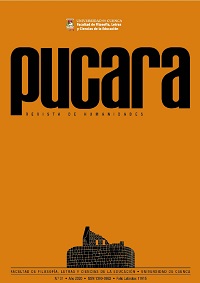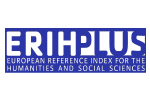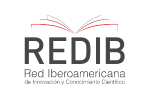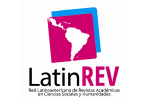Mejora de la capacidad de expresión oral de L2 para jóvenes aprendices a través de juegos basados en contenido
DOI:
https://doi.org/10.18537/puc.31.07Palabras clave:
Enfoque cuantitativo, juegos basados en contenido, destreza de expresión oral, subdestrezaResumen
El presente proyecto de investigación estuvo enfocado en responder las siguientes preguntas: (1) ¿En qué grado el uso de juegos basados en contenido dentro de la clase de inglés ayuda a los estudiantes de sexto grado de la Unidad Educativa Particular "Rosa de Jesús Cordero" (Catalinas) a mejorar su destreza de expresión oral de una segunda lengua? (2) ¿Qué subdestreza tendría el mayor impacto al desarrollar la destreza de expresión oral de un contenido de clase de una segunda lengua? Los participantes del estudio fueron sesenta y ocho estudiantes divididos en dos grupos de treinta y cuatro estudiantes cada uno al comienzo del año escolar. Los estudiantes de cada grupo no tenían un nivel de inglés homogéneo. Se aplicó la estrategia de aprendizaje de juegos basada en el contenido dentro del aula para motivar a los estudiantes a mejorar su destreza de expresión oral en inglés. Se aplicaron instrumentos de prueba previa y posterior en el proyecto tanto al grupo de intervención como al grupo de control. Además, se planificaron y desarrollaron 10 juegos conectados con el contenido de planificación curricular durante la participación. El enfoque cuantitativo se desarrolló en esta investigación. Los resultados revelaron que la estrategia de aprendizaje de contenidos a través de juegos tuvo un impacto significativo en los estudiantes del grupo de tratamiento en la subdestreza mensaje.
Descargas
Citas
Abukhattala, I. (2012). Krashen’s Five Proposals on Language Learning:
Are They Valid in Libyan EFL Classes. Journal of English Language Teaching. 6(1), 1-4. https://doi:10.5539/elt.v6n1p128
Aimin, L. (2013). The Study of Second Language Acquisition Under Socio-Cultural Theory. American Journal of Education Research. 1(5), 162-167. https://doi: 10.12691/education-1-5-3
Arias, M., Castillo, L., Gonzalez, P., Espinoza, F., Ochoa, C., Quiñonez, A., Solano, L. & Ulehlova, E. (2015). EFL Teaching in the Amazon Region of Ecuador: A Focus on Activities and Resources for Teaching Listening and Speaking Skills. English Language Teaching, 8(8), 94-103. https://doi:10.5539/elt.v8n8p94
Bada, S. (2015). Constructivism Learning Theory: A Paradigm for Teaching and Learning. Journal of Research & Method in Education. 5(6), 66-70. https://doi: 10.9790/7388-05616670
Ballester, A. (2014). Meaningful Learning in Practice. Journal of Education and Human Development. 3(4), 199-209. https://doi:10.15640/jehd.v3n4a18
Bowo, Y. (2014). The Effect of Using Taboo Game to Ninth Graders´ Speaking Skill. SMP Pangudi Luhur Jakarta, 165-170.
Buitrago, R. & Ayala, R. (2008). Overcoming fear of speaking in English through meaningful activities: A study with Teenagers. 1-24.
Calle, A., Calle, S., Argudo, J., Moscoso, E., Smith, A. & Cabrera, P. (2012) Los profesores de inglés y su práctica docente: Unestudio de caso de los colegios fiscales de la ciudad de Cuenca, Ecuador. MASKANA, Vol. 3, No. 2, 2012 p1-17
Creswell, J. (2014). Research Design. SAGE Publications, Inc. 4th Edition. 1-342.
Dewi, R., Kultsum, U. & Armadi, A. (2017). Using Communicative Games in Improving Students’ Speaking Skills. English Language Teaching, 10, 1st ser., 63-71. https://doi: 10.5539/elt.v10n1p63
Dornyei, Z. (2001). Motivational Strategies in the Language Classroom. Cambridge University Press. 1-163.
Du, X. (2009). The Affective Filter in Second Language Teaching. Journal of Asian Social Science. 5(8), 1-4. https://doi: 10.5539/ass.v5n8p162
Ellidokuzoğlu, H. (2014) How to apply the Natural Approach in an unnatural setting. Military Inquiry (Stratiotiki Epitheorisi -Στρατιωτική Επιθεώρηση). 1-8.
Fitri, R. & Gurning, B. (2013). Improvement students in speaking through team games tournament techniques.
Gozcu, E. & Caganaga, C. (2016). The importance of using games in EFL classrooms. Cypriot Journal of Educational Science. 11(3), 126-135. https://doi: 10.18844/cjes.v11i3.625
Honarmand, R., Rostampour R. & Abdorahimzadeh, S. (2015). The Effect of Game Tic Tac Toe and Flash Cards on Zero Beginners’
Vocabulary Learning. International Journal of Educational Investigations. 2(3), 27-41.
Kasker, C. (2009). The newest communication research on classroom motivation. Center for Teaching Excellence, United States Military Academy.
Khan, N. & Ali, A. (2010). Improving the speaking ability in English: The students ‘perspective. Journal of Social and Behavioral Sciences.(2), 3575-3579. https://doi:10.1016/j.sbspro.2010.03.554
Krashen, S. & Terrel, T. (1995). The Natural Approach Language Acquisition in the Classroom. Prentice-Hall Europe.
Miller, S. (2003). Vygotsky’s educational theory in cultural context. 1-19. Ministerio de Educación del Ecuador. Currículo de los Niveles
de Educación Obligatoria Subnivel Medio. English as a Foreign Language for Subnivel Medio. 449-528. Segunda edición, 2019. https://educacion.gob.ec/wp-content/uploads/downloads/2019/09/EGB-Media.pdf
Moayad, M. (2011). The effect of using educational games on the students’ achievement in English language for the primary stage.
Rijal, S., & Arifah, N. (2017). Teaching productive skills through VARK. Journal Pemikiran Penelitian Pendidikan dan Sains. 12-18.
Roehl, A., Linga, Sh. & Shannon, J. (2013). The Flipped Classroom: An Opportunity to Engage Millennial Students Through Active Learning Strategies. Journal of Family & Consumer Sciences. 105(2), 44-49.
Smolucha, F. (1989). The Relevance of Vygotsky´s Theory of Creative Imagination for Contemporary Research on Play. 1-12.
Toro, V., Camacho, G., Pinza, E. & Paredes, F. (2018). The Use of the Communicative Language Teaching Approach to Improve Students’ Oral Skills. English Language Teaching, 12(1), 110-118. https://doi: 10.5539/elt.v12n1p110
Urrutia, W, & Vega, E. (2010). Encouraging Teenagers to Improve Speaking Skills through Games in a Columbian Public School. 12(1), 11-31.
Wang, Y., Shang, H. & Briody, P. (2011). Investigating the impact of using games Teaching Children English. International Journal of Learning & Development. 1(1), 1-15. https://doi:10.5296/ijld.v1i1.1118
Wang, Z. (2014). Developing Accuracy and Fluency in Spoken English ofChinese EFL learners. Journal of English Language Teaching.
(2), 1-9. https://doi:10.5539/elt.v7n2p110
Yolageldili, G. & Arikan, A. (2011). Effectiveness of Using Games in Teaching Grammar to Young Learners. Elementary Education Online. 10(1), 219-229.
Descargas
Publicado
Cómo citar
Número
Sección
Licencia
Derechos de autor 2020 Cristina Alexandra Juca Castro, Susana Ximena Orellana Mora

Esta obra está bajo una licencia internacional Creative Commons Atribución-NoComercial-CompartirIgual 4.0.
Copyright © Autors

Usted es libre de:
 |
Compartir — compartir y redistribuir el material publicado en cualquier medio o formato. |
 |
Adaptar — combinar, transformar y construir sobre el material para cualquier propósito, incluso comercialmente. |
Bajo las siguientes condiciones:
 |
Atribución — Debe otorgar el crédito correspondiente, proporcionar un enlace a la licencia e indicar si se realizaron cambios. Puede hacerlo de cualquier manera razonable, pero de ninguna manera que sugiera que el licenciador lo respalda a usted o a su uso. |
| No comercial — No puede utilizar el material con fines comerciales. | |
| Compartir Igual— si remezcla, transforma o desarrolla el material, debe distribuir sus contribuciones bajo la misma licencia que el original. |
| Sin restricciones adicionales: no puede aplicar términos legales o medidas tecnológicas que restrinjan legalmente a otros a hacer cualquier cosa que permita la licencia. |
Mayor información sobre este acuerdo de autoría y licencia, transferencia de derechos o solicitudes de reproducción, pueden ser consultados en este enlace.












